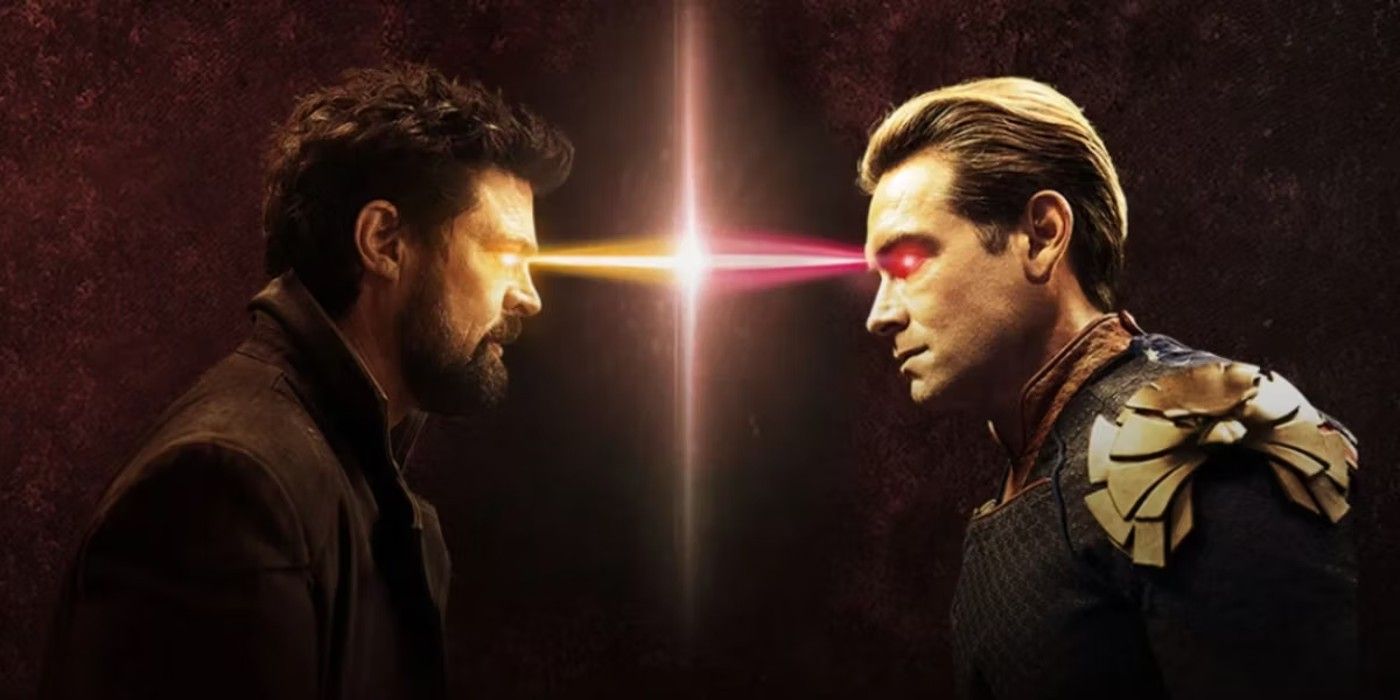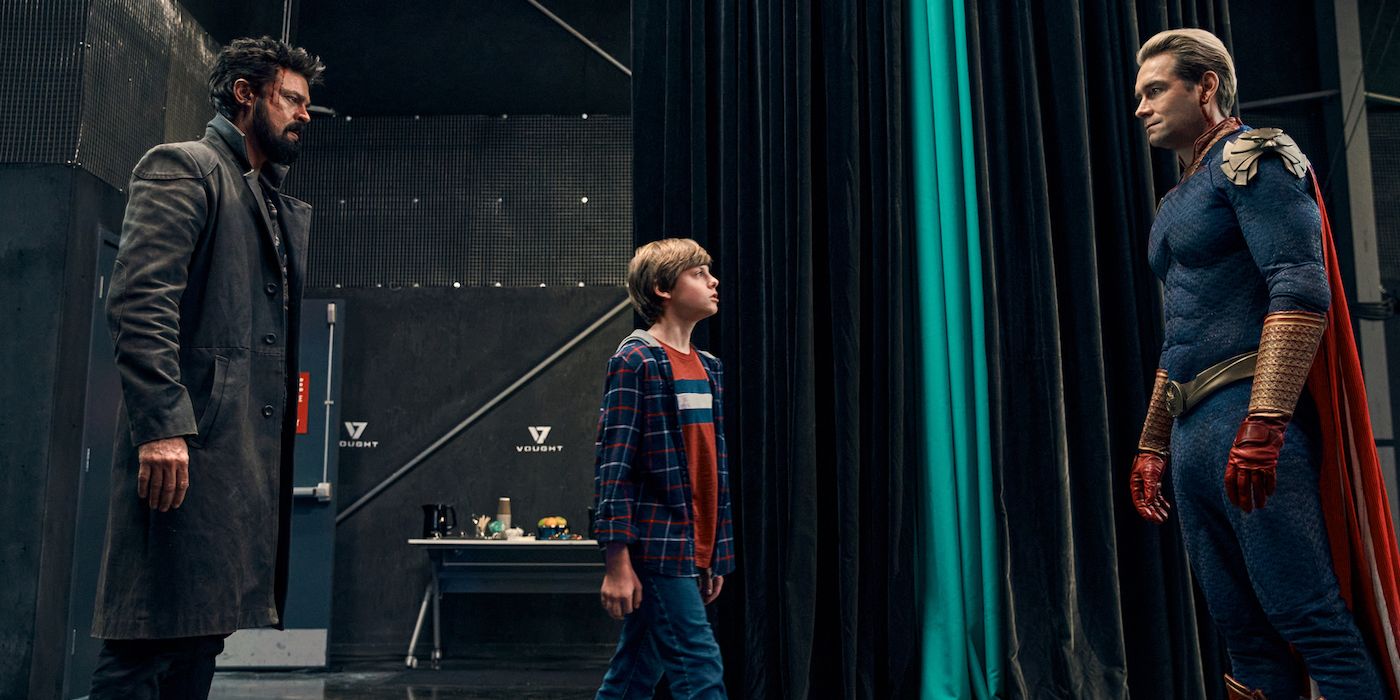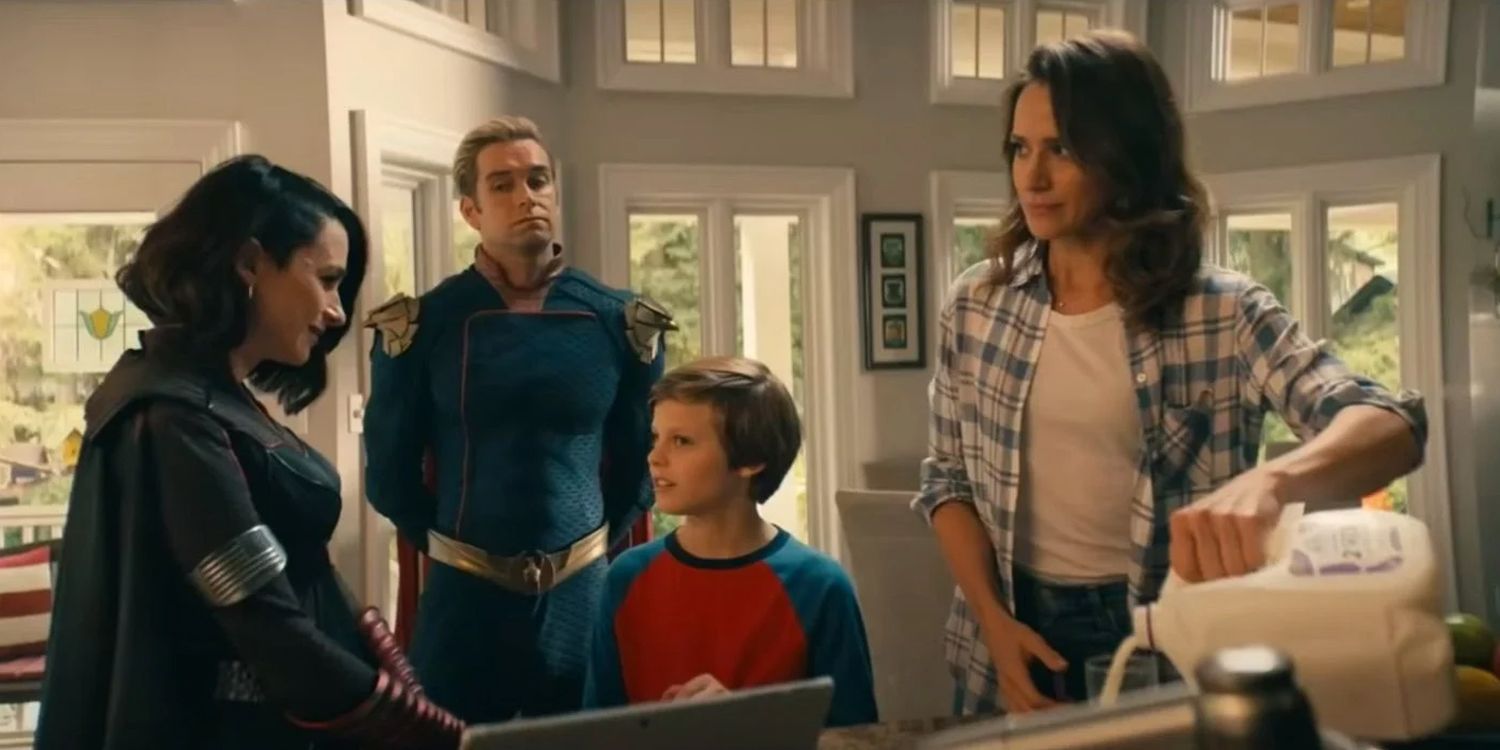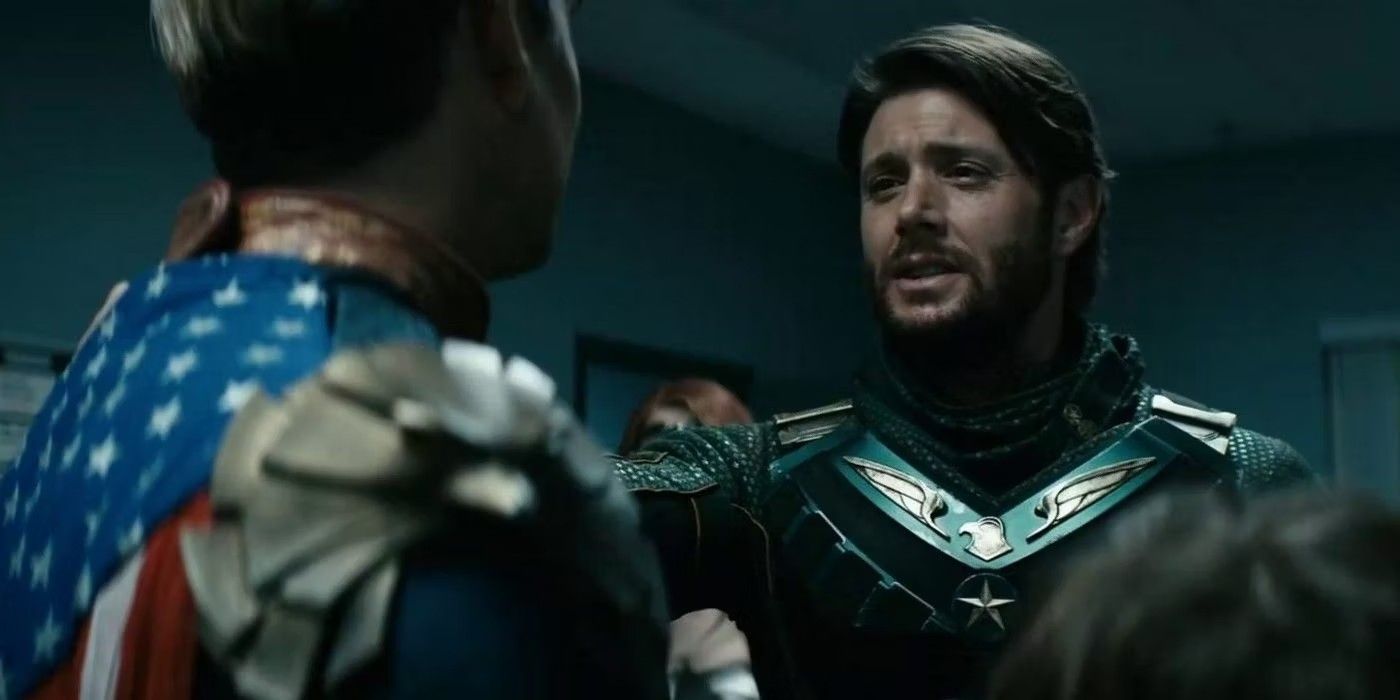The following contains spoilers for Season 3 of The Boys, now streaming on Prime Video.
Season 3 of Prime Video's The Boys reached its conclusion with the climactic and devastating battle between Butcher, Solider Boy and Homelander. While the season had been leading up to this moment for quite some time, it surprised audiences by centering the conflict around Ryan, Homelander's son who hasn't been seen since early in the season. The results of this confrontation were momentous for all involved, especially for Ryan and his warring father figures -- a relationship struggle that signals where the series is headed in the future.
In the season's third episode, Butcher makes the choice to intentionally push Ryan away emotionally in an attempt to protect his deceased wife's son from the coming bloodshed. This choice backfires in the finale, when Homelander arrives at Mallory's estate to reunite with his biological son; without Butcher, Homelander seems to Ryan like the only family he has left. Homelander then introduces Ryan to Soldier Boy, who had just discovered he is Homelander's biological father. Despite Homelander's plea, Soldier Boy declines his family with disgust to fight alongside Butcher; this alliance is short-lived, when Butcher has to prevent him from destroying the building with Ryan inside. Ultimately, with just Butcher and Homelander left standing, Ryan ends the battle by begging Homelander to fly them both away so that they can finally be a family. To Butcher's dismay, Homelander obliges; all he can do is watch.
This season of The Boys has been hyper-fixated on familial relationships, and for good reason; it uses the lineage of its central characters to depict the struggle for America's soul. As uncomfortable as it will be to reckon with for the show's audience, Homelander represents America today; an America shifting ever violently towards extreme Right-wing ideologies and blatant fascism. The final scene wherein Homelander executes a protestor to the cheers of his fans was inspired by a conservative campaign ad, and eerily recalls how Trump (whom Homelander has been modeled after this season, at least in part) claimed he could shoot somebody on New York's 5th Avenue and not lose voters. Like present-day America, the result of being confronted with his shortcomings and wrongdoings has led to a fractured, volatile person who can only be happy when exerting power.
On the other hand, where Homelander represents America's present, Ryan represents America's future, its younger generation. Butcher is at his most hopeless in Season 1, when he believes his wife is dead: he believes he has no future, and thus will do anything to punish Homelander in the present. In Season 3, Butcher eventually learns that, through family, he could have a better tomorrow -- but it's too late. Like America's younger generation as a whole, Ryan is conflicted. He's initially afraid of Homelander, but when the Supe offers him a simple, familial connection in the wake of Butcher's violent reproach, he accepts it. Ryan's choice represents how the American myth can be tempting when those in power swear to look out for the people's best interests and then fail to do so.
This fractured family tapestry Homelander is attempting to stitch together has been the key to understanding The Boys since Season 2, and the introduction of his first and only love: Stormfront. Stormfront was a member of The Seven who initially seemed to be progressive (in a white-feminist sense, at least), only to be revealed as a staunch Nazi. Not Nazi adjacent: a literal, historical Nazi. This surprisingly kismet relationship reflected how closely intertwined historical fascism and extreme Right-wing American ideologies are. Homelander and Stormfront ultimately desire to raise Ryan as a future superhero and world leader in their image; this resembles how Neo-Nazi organizations co-opt and thrive in conservative spaces, excited about the chance to infuse the popular ideology of conservatism with the publicly reviled notions of Nazism. In both the real world and in the show, this is an insidiously effective union.
The other key member of this family tree is, of course, Soldier Boy. By making him Homelander's biological father, the series acknowledges how modern American proto-fascism was born from the previous guard of Republicans, many of whom would identify with Soldier Boy's militant sense of manhood and outdated beliefs. This might-makes-right mentality combined with stubborn bigotry is what paved the way for the Homelanders of the world to believe that they have the duty to accumulate as much power as possible in order to shape the world in their image -- even if it means allying with Nazis.
Yet, because America continues to be a culture of contradictions, when confronted with his legacy Soldier Boy appears to be repulsed. Even though a direct, scientific line can be drawn between the two of them, Homelander now feels connected to nothing -- from nothing. This is similar to how, in the wake of January 6, a "separation" was made apparent between the rabid, modern far-Right and more "traditional" conservatives who deny paving the way for this brand of outright violence.
Season 3 ends with Ryan firmly in the clutches of Homelander, now finally comfortable to be the villain he's always been with a fanbase to cheer him on. For a moment, it seems as though Ryan may cheer as well. The final image is left ambiguous -- likely intentionally. At the current moment, the future of America feels so deeply entrenched in the tendrils of the Republican Party, evangelical Christian groups and far-Right think tanks. Supreme Court decisions like those seen last session -- including the reversal of Roe v. Wade -- were the result of decades of planning. Given that the Democratic Party consistently fails to even look beyond the next midterm election, it can be easy to feel like Butcher felt in Season 1: hopeless.
It doesn't have to be that way. Much like the Democratic Party, Butcher's biggest mistake each season has been focusing on the short-term. He wants to defeat Homelander, and believes that all his problems will be solved if he can accomplish that goal. America knows from ousting its own Homelander that the problems only begin there. But in Season 3, Butcher has seen the consequences of this line of thought. Ironically, it may be Butcher's impending death sentence that causes him to look past the present. To truly be happy, Butcher needs to stop focusing on killing Homelander and start focusing on protecting Ryan -- protecting his future. It's a choice the finale proves he can make.
All three seasons of The Boys are available to stream on Prime Video.




